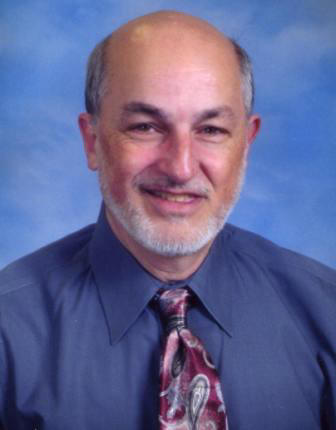
‘Helping’ program helps Elwood school counselor win national honor
It’s one thing to love your job. It’s another when you’re loved for the work you do.
Anthony Pantaleno, a school psychologist in the Elwood School District on Long Island, has been working with students for 35 years — a job with inherent rewards and satisfaction gleaned from helping those who are struggling. Now he has been acknowledged even further afield: the National Association of School Psychologists named him the national 2013 School Psychologist of the Year.
His approach to addressing mental and emotional health in the school has been multi-pronged: system-level prevention and intervention, mental health, consultation and collaborations, diversity, building relationships and advocacy. Sometimes that means working with one student stunned by a problem. Or it may mean working with teams of students as mentors and helpers. It can mean holding group counseling sessions or working with his professional peers in school.
Pantaleno carries out his tasks in a diverse community, which he described as having a landscape ranging from industrial to multi-million dollar condominiums. It used to be farm country, he added.
Pantaleno is a member of the Elwood Teachers Alliance, led by Lorelei Stephens.
For 17 years, Pantaleno ran the district’s Natural Helpers program of peers helping peers. Participants are students who are nominated by classmates to serve as go-to people for kids having problems. Those who were selected spent three days in retreat learning listening skills, and learning how to network with adults and professionals. Their names were published in the school paper, so students would know whom to approach when they were troubled.
The Helpers’ role is to be there for a peer in crisis, who may be reluctant to talk with an adult.
“You may turn to a parent or adult, but you’re likely to turn to a friend,” said Pantaleno.
Natural Helper students are not to handle the crises by themselves, Pantaleno said; they work with their team. If the situation is more serious, they work with school social workers, psychologists or other professionals to triage the situation and create a plan.
A large component of the program is anti-bullying, said Pantaleno.
This year, Pantaleno started mindfulness-based stress reduction with a counseling group in his school. It is a technique that has been introduced in schools in the past 10 years, he said. It is not religious based, but rather a technique to release stress and anxiety. It can be done with scholar-athletes and music students to help them get calm before big events, he said as an example. It can be used with students who have three exams in one day or are overwrought about being over tested.
Mindfulness can reach large numbers of students. It introduces stillness and quiet to a generation that is on overdrive from constantly multi-tasking and being hooked up to technology.
Science is documenting the effectiveness of the technique, he said.
Pantaleno has also introduced Peter Yarrow’s "Don’t Laugh at Me" campaign into the Elwood Schools, where it was renamed Operation Respect. The program matches students with others who may have physical, mental or emotional disabilities and are less likely to be active and involved in school. They work to create more accepting environments within schools, where many special needs students are now mainstreamed and may be at risk of being bullied.
Once a month, the pairs go play golf, take on laser tag or head to a movie.
Ever engaged, Pantaleno also started a mentoring program in the district, where juniors and seniors mentor ninth and tenth graders for a year, introducing to them the elements of a supportive role. Beginning high school can be tough on many students as they face crowded hallways, new faces, new teachers and changing curriculums.
Members of the Mentoring Partnership meet once a week during lunch. They share ideas on how to respond to situations. As a group, they also have icebreaker activities.
One student, Pantaleno recalled, was a short-tempered freshman challenged by emotional disabilities and the divorce of his parents. He opened up to his mentor and began showing up and looking for him ahead of time, the psychologist recalled. They shared lunch together.
“He had somebody he knew was just his. He didn’t have to perform. There was no standard he had to meet,” Pantaleno said.
-- Liza Frenette